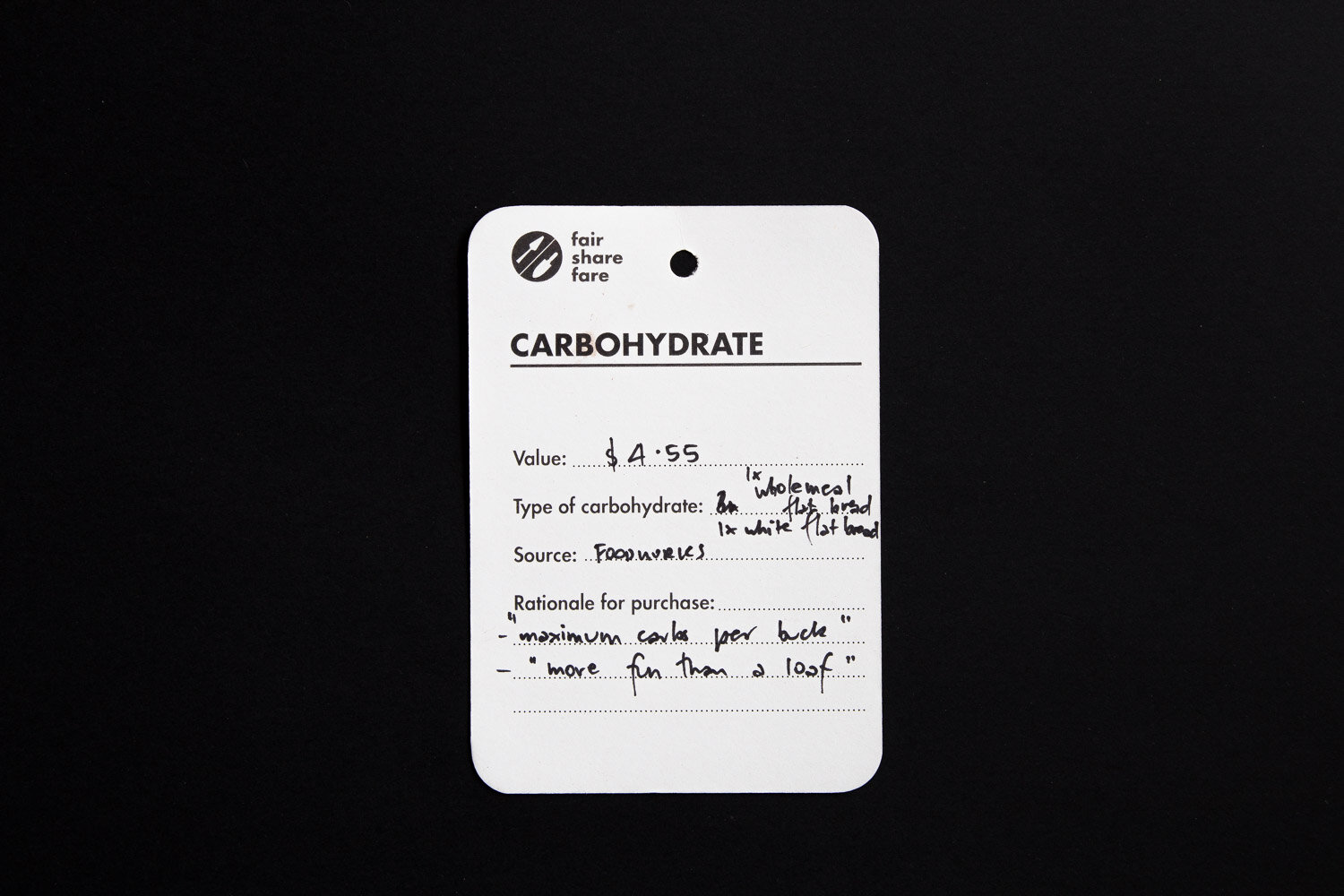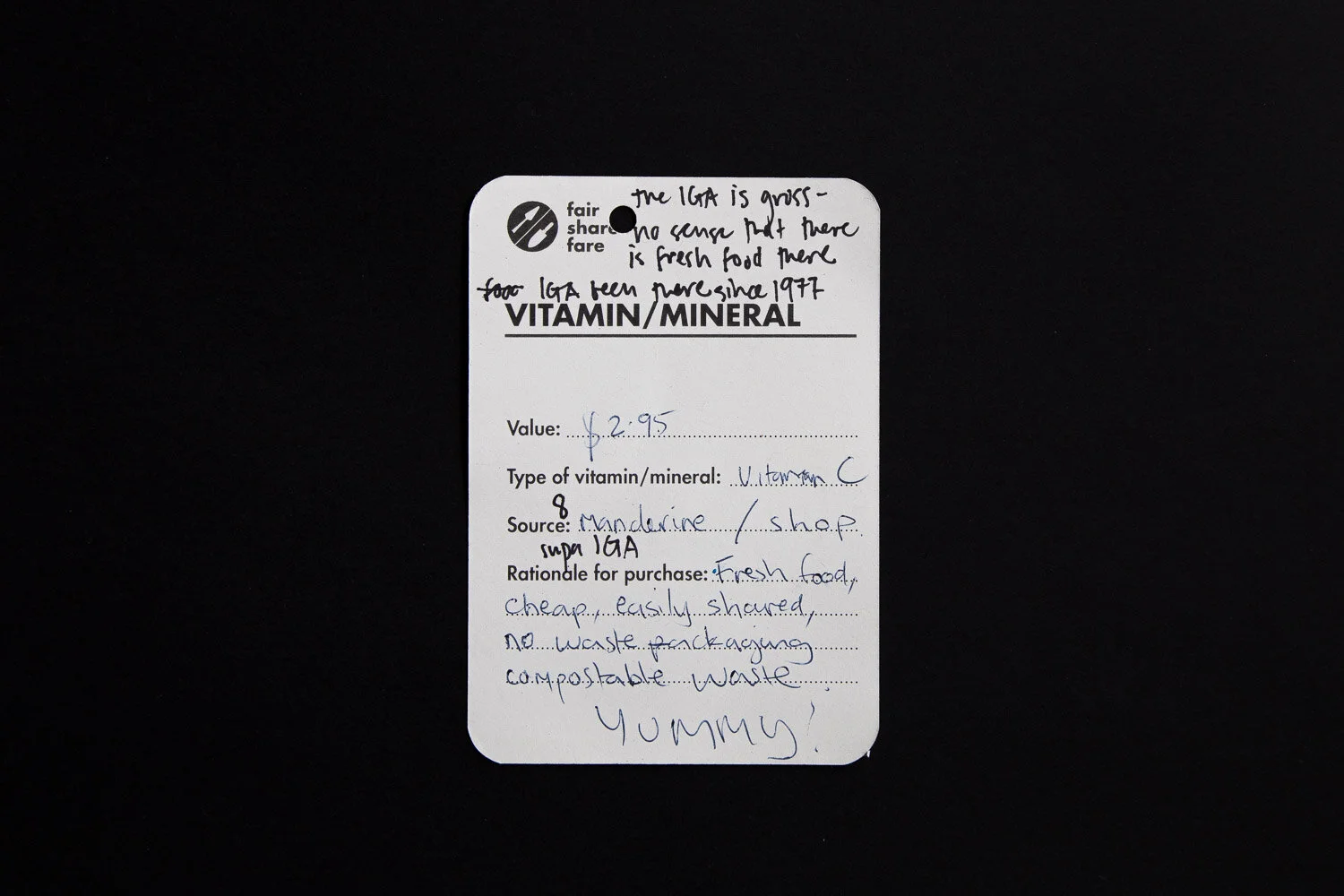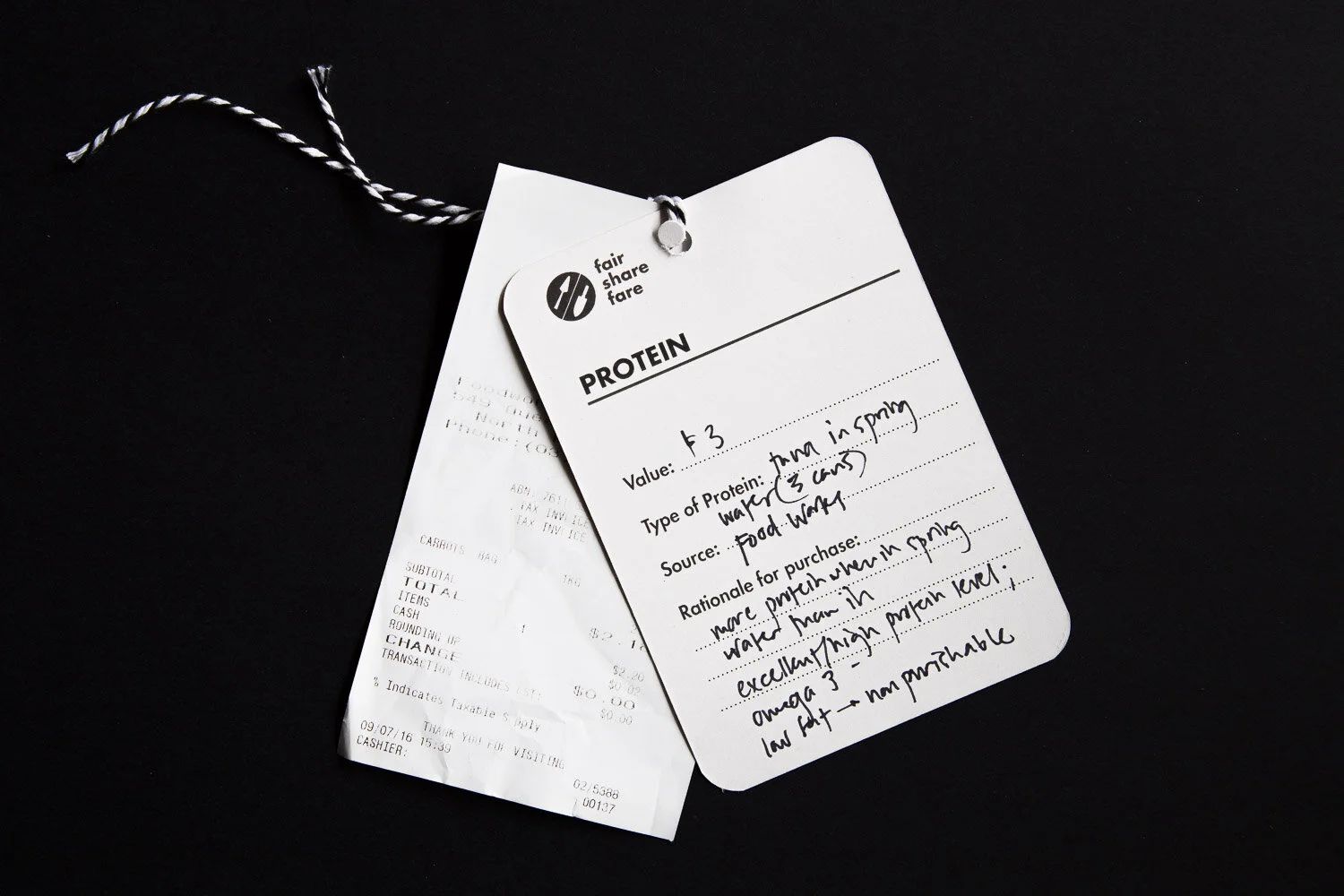REFUGE: FLOOD (2016)
ABOUT REFUGE: FLOOD
How should cultural spaces respond to catastrophic emergencies? How can we ensure that we and our communities are prepared, and that we understand and fulfil our role as a local resource? What role should the arts, and artists, play in planning for such events? These were some of the prompting questions of REFUGE: Flood, where artists and disaster management professionals worked with the local North Melbourne community to explore the likelihood and potential impacts of a localised flood disaster. It configured North Melbourne Town Hall, home of Arts House, into a place of community refuge for a 24-hour disaster rehearsal with artists Jen Rae, Dawn Weleski, Latai Taumopeau, Lee Shang-Lun, Kate Sulan and Hannah Donnelly. Creative Director: Angharad Wynne-Jones. Producer: Tara Prowse.
REFUGE: FLOOD evaluation report
REFUGE: FLOOD gallery (photos by Bryony Jackson) - coming soon
REFUGE: FLOOD. Courtesy of Arts House.
FAIR SHARE FARE, Jen Rae + DAWN WELESKI
Food brings us together, but in times of scarcity and conflict, it has the capacity to tear us apart.
Artists Jen Rae and Dawn Weleski co-founded Fair Share Fare in 2016 while in a creative development residency at Arts House thanks to the support of the City of Melbourne, Australia Council for the Arts, Carlton Connect Initiatives Fund and the Centre for Cultural Partnerships, VCA and MCM, University of Melbourne. For REFUGE: FLOOD, the artists investigated the intersections between community food systems knowledge + practices, disaster capitalism and conflict, scarcity + rationing, and Australian food futures in the climate emergency context to produce a series of participatory food activities for REFUGE audiences.
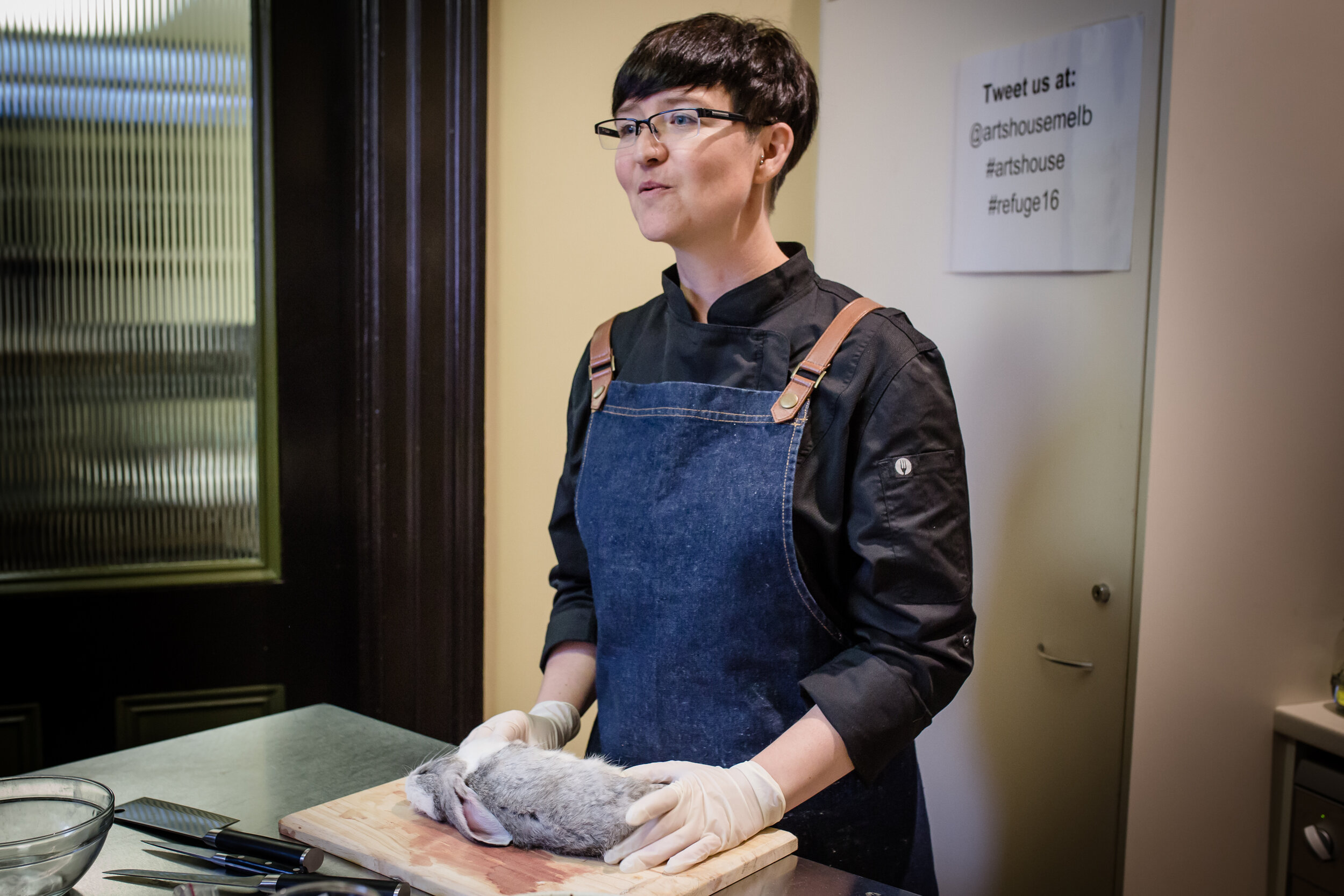
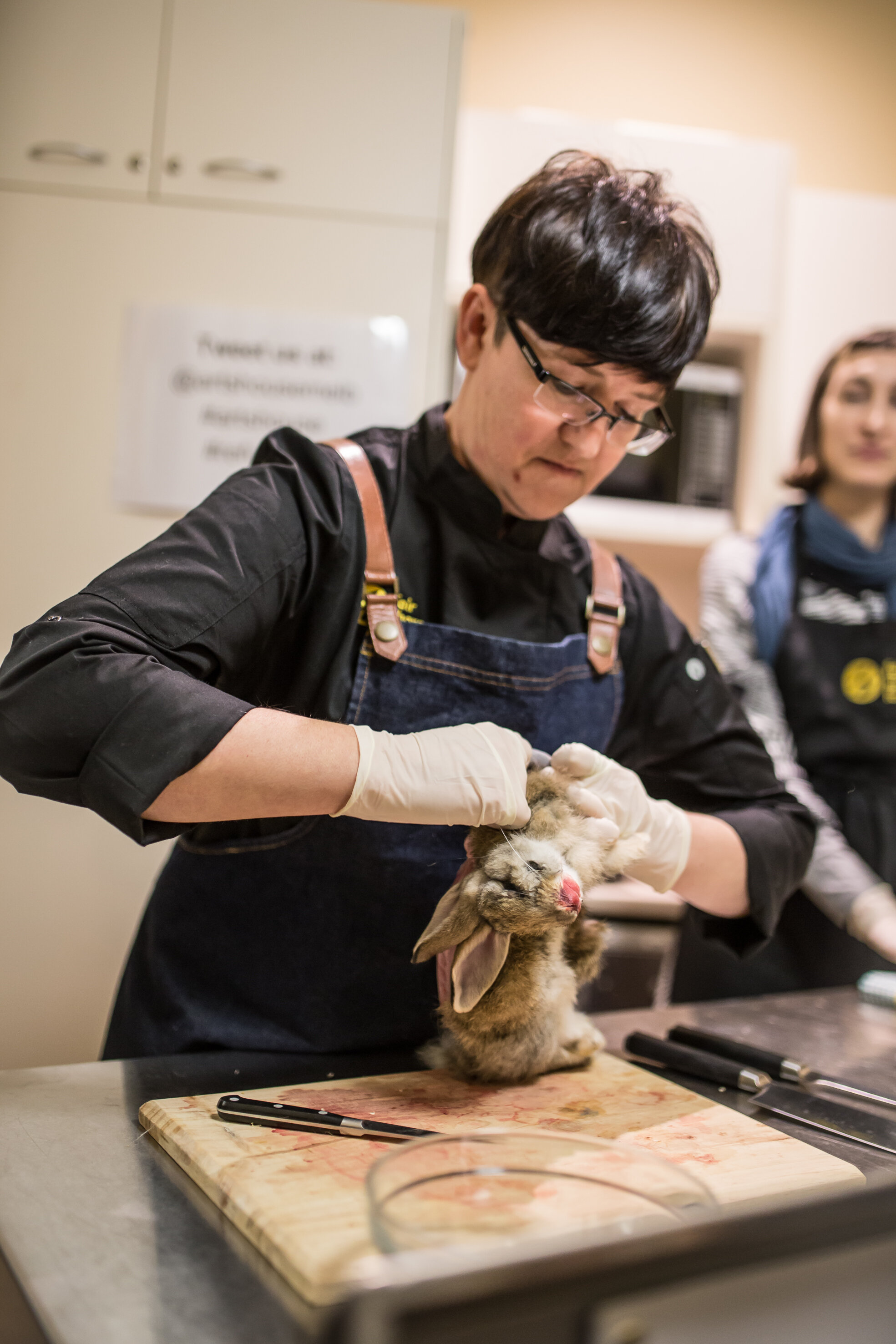
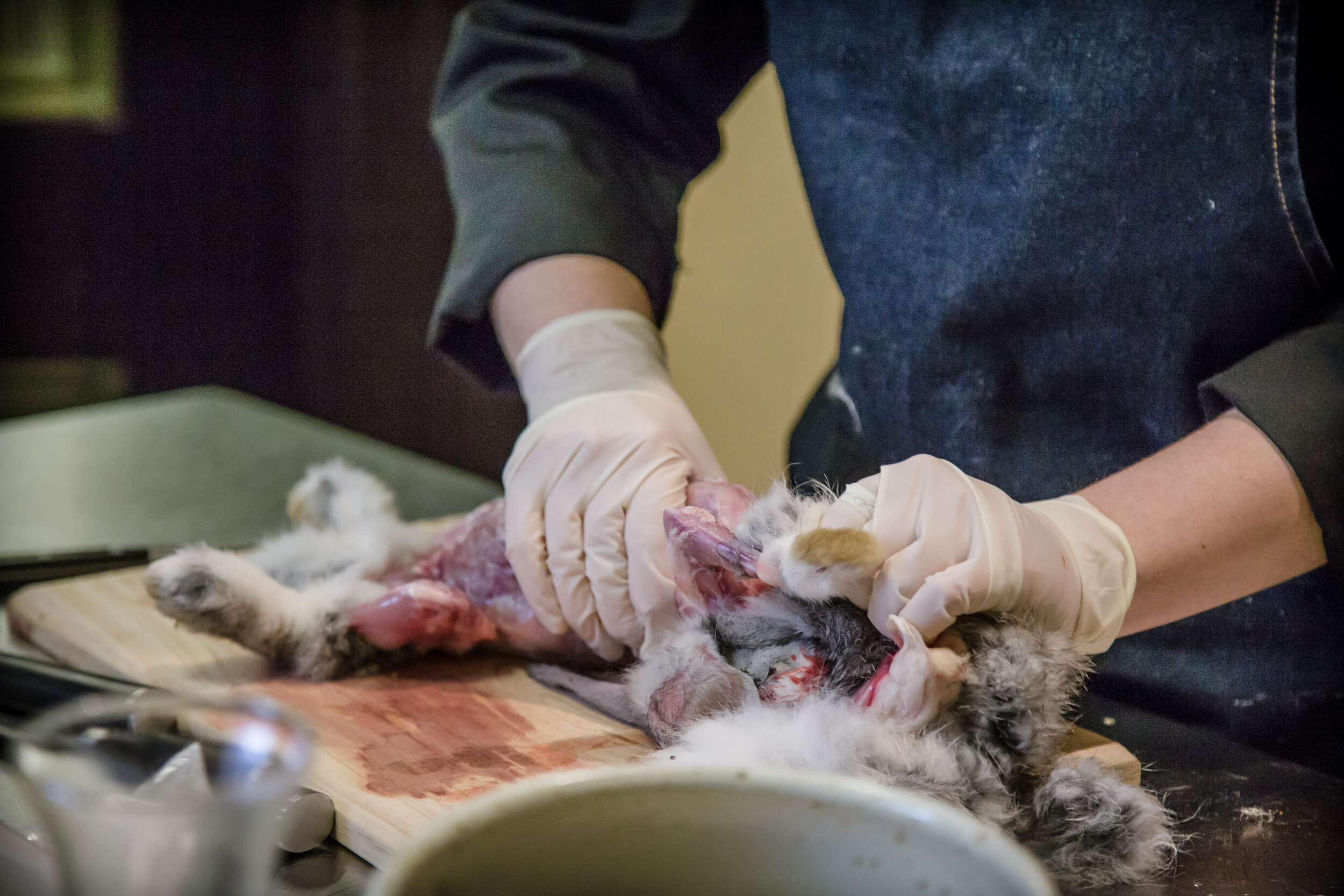
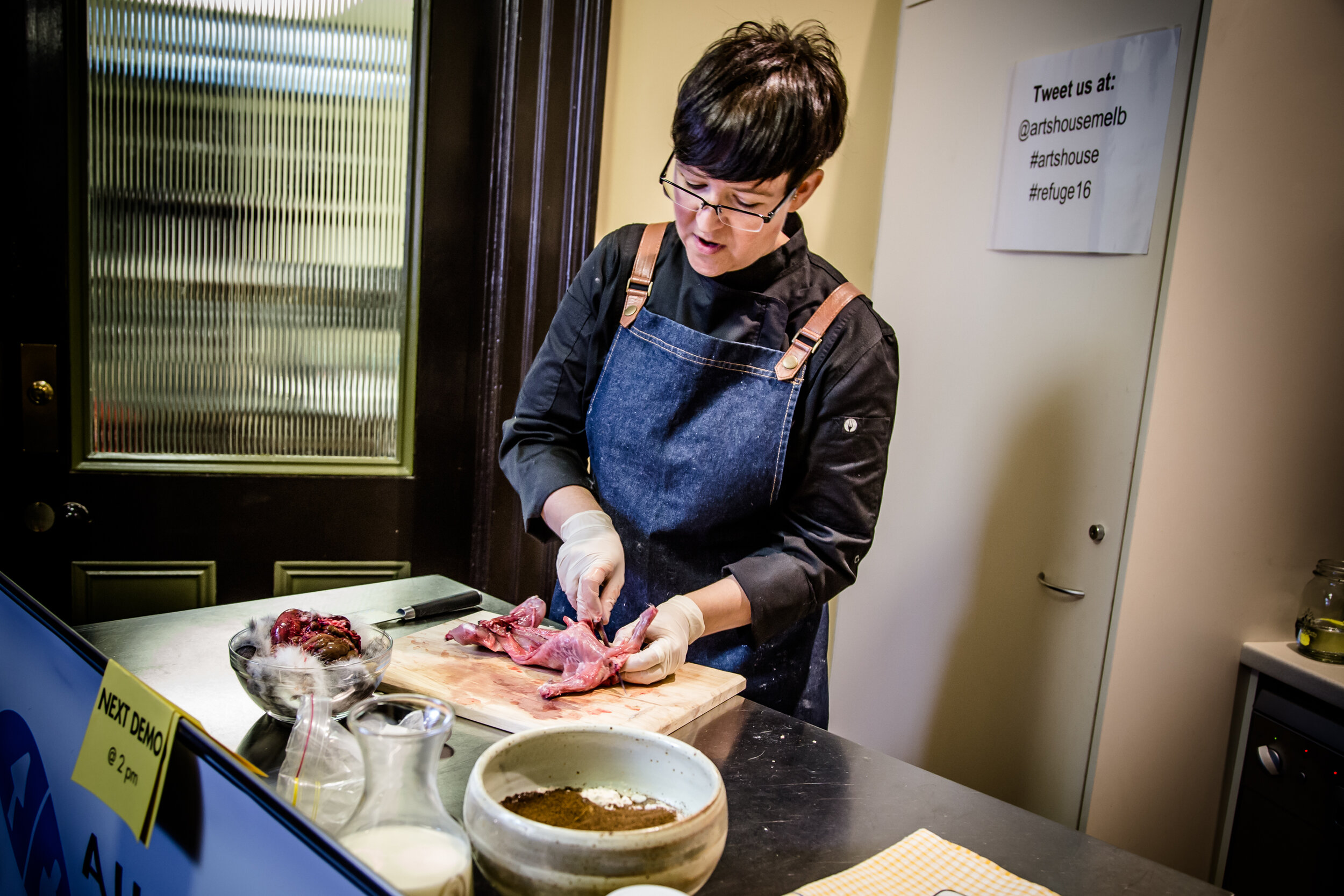
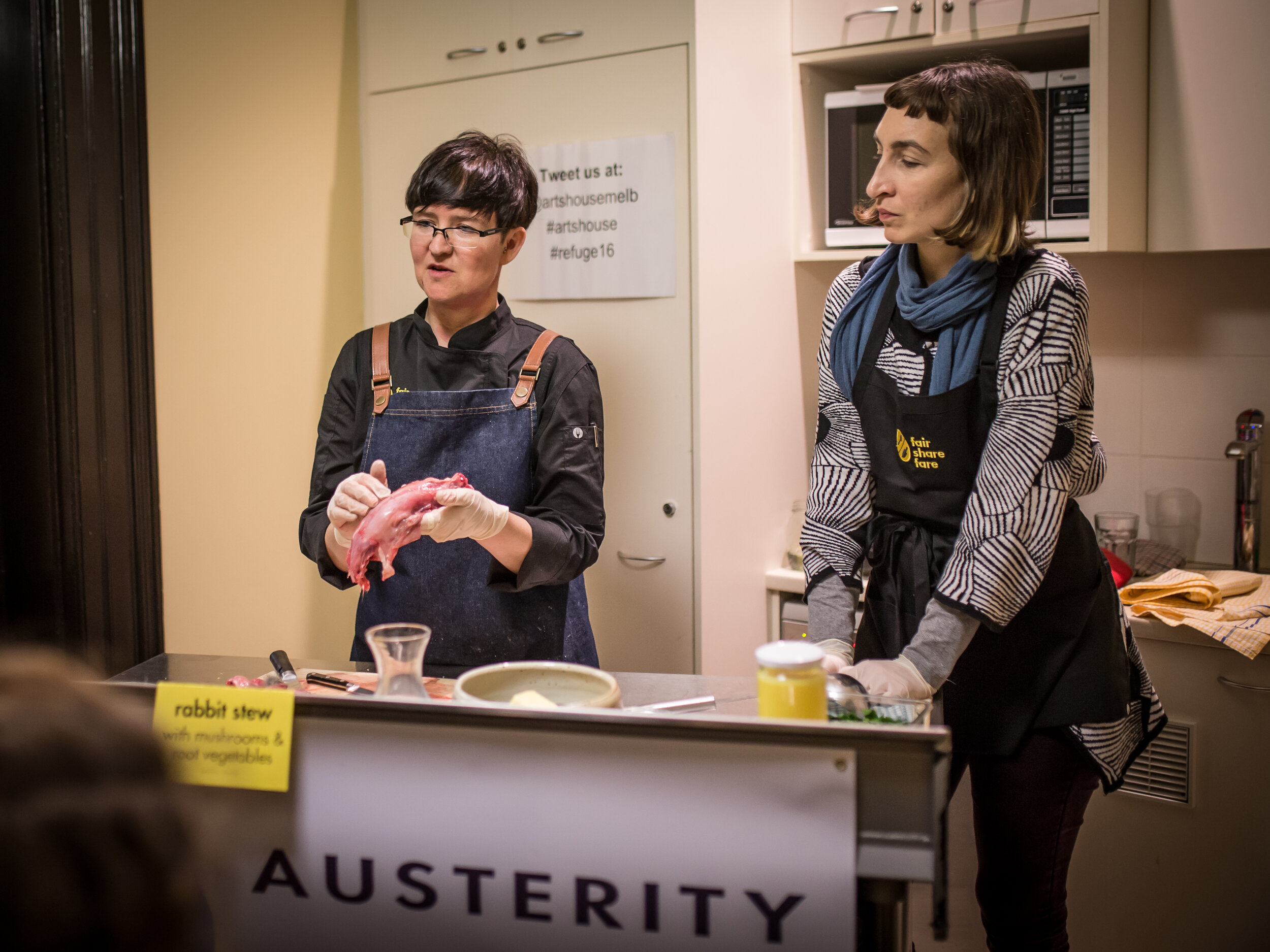
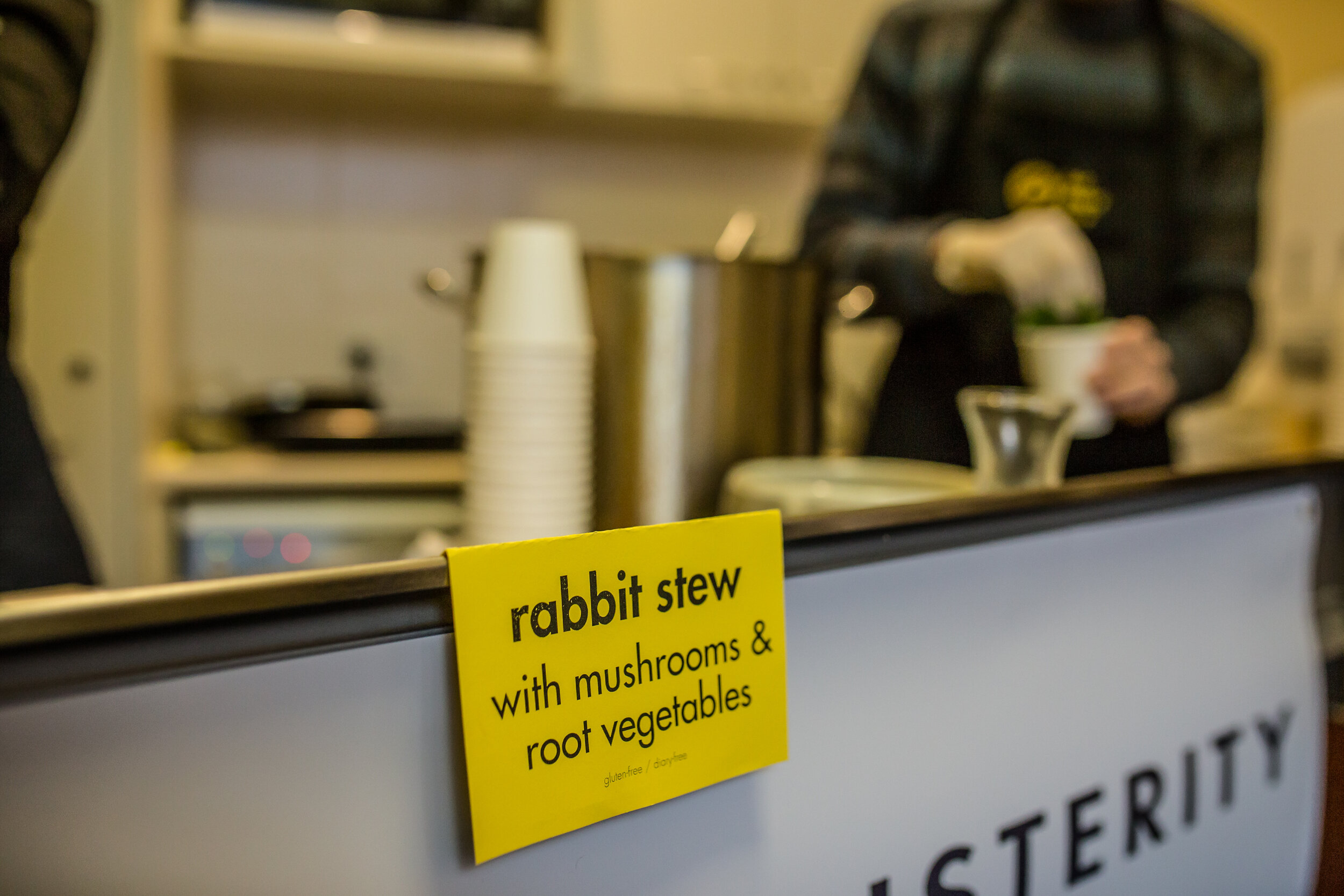
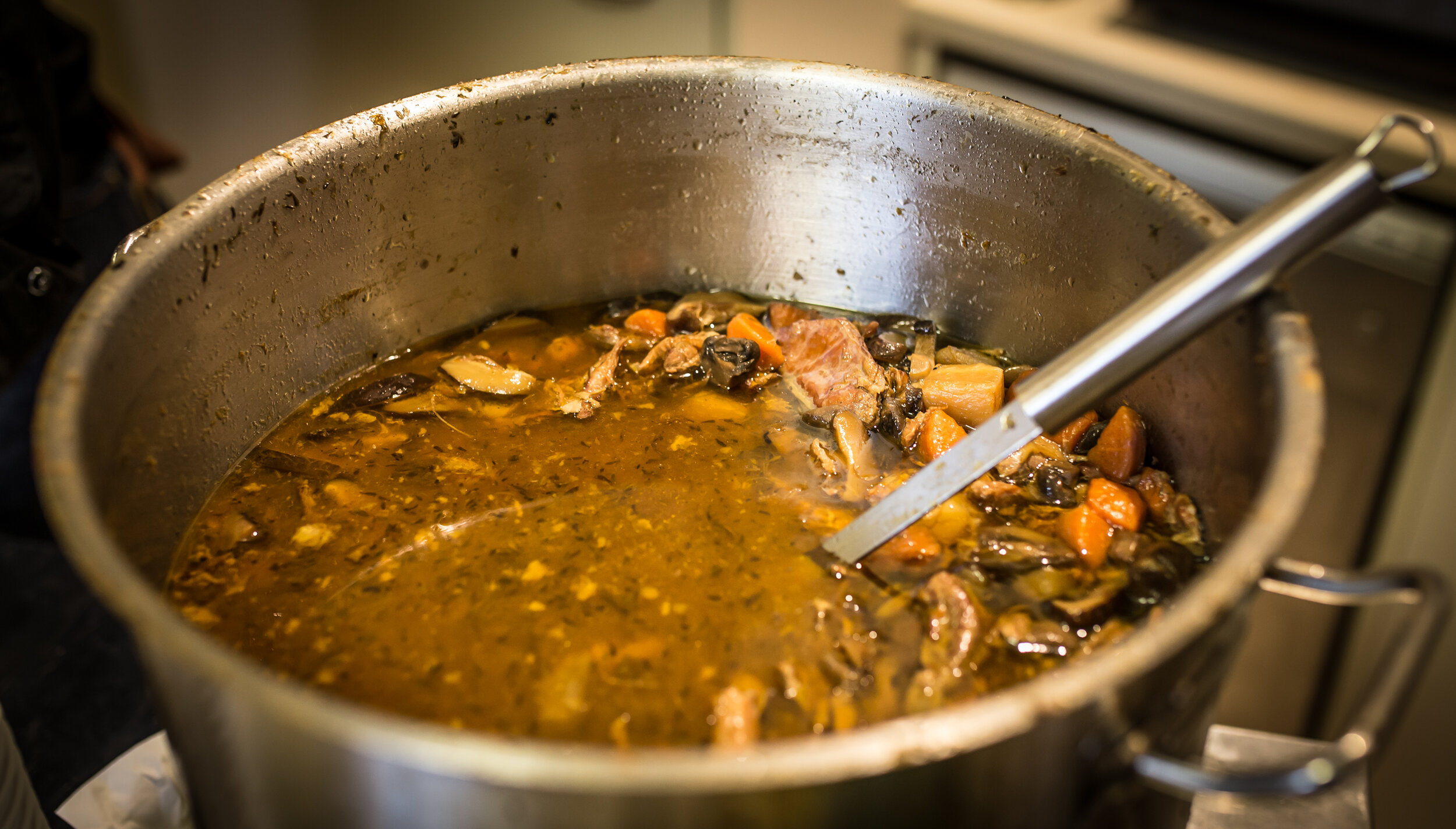
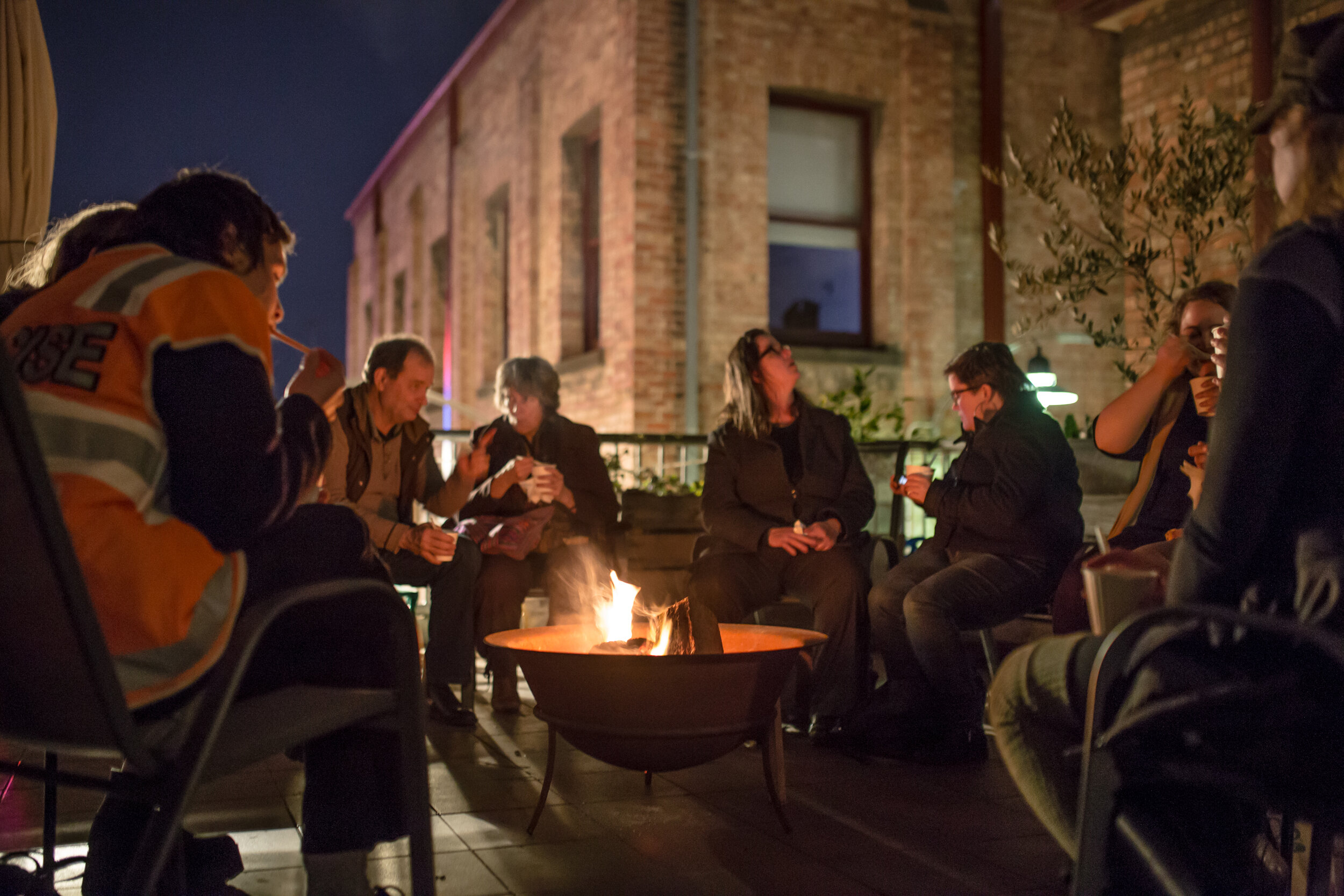
AUSTERITY COOKING DEMONSTRATIONS
You're hungry. You haven't eaten in days. The shops are closed. Your food supplies are running short. What do you do? Do you have the skills to kill and prepare an animal to eat? What's available in your neighbourhood - rats? mice? pigeons? flying foxes? rabbits? Would you know how to skin, wash and gut the animal without contaminating it?
Fair Share Fare's Austerity Cooking Demonstrations at REFUGE offered audiences an intimate food conversation about preparing for emergencies - what to store in your larder (e.g. clarified butter); how to make basic flatbreads out of three ingredients; and how to skin, gut and joint a rabbit for eating. Stories and facts about feral food sources and settler food explorations & mishaps were interspersed in each demonstration.
Following the Austerity Cooking Demonstrations, people were offered a serving of rabbit stew, wattleseed damper and clarified butter.
FOOD STORE PERFORMANCE DOCUMENTATION
The Relief Centre is open. The Food Store is empty and there are mouths to feed - 50 of them. You are greeted at the window and asked to help. Upon agreement, you are given a task card and some cash. Your job is to to fulfil the task - to source a protein, vitamin/mineral, carbohydrate or fat item to help stock the Food Store. North Melbourne is a food desert. What protein will you find for $3? Can you barter with the local cafe for day-olds? What would you want to be given for food in an emergency? You've decided and return to the Food Store with your purchase/barter/foraged food. This time you are invited into the Food Store for a debriefing and documentation about the rationale for your food item. You are rewarded for your efforts with your own ration.
Fair Share Fare presented the Food Store at REFUGE to act as a data generator - to test, reveal, expose and gain understanding about food knowledge, industriousness and empathy. Participants as a collective in this performance were tasked and responsible to source food for 50 overnight REFUGE participants using small amounts of cash, bartering, trading and ingenuity within in local North Melbourne community. Participants were interviewed when they returned to the Food Store with the food they sourced. See some of the food store participant food items documented below, along with some of the corresponding task cards.
Once the Food Store closed, food parcels were packaged for the overnight REFUGE participants…but, it came with a twist.
TASK CARDS
The task cards collected show the rationale for each purchase and reflect a scale of food literacy. Some items chosen were logical considerations. Some showed industriousness in sourcing or generosity in donation. Some reflected an empathetic response considering food needs around nutrition in a crisis, food allergies, comfort foods, etc..
Photos: Emma Byrnes
FOOD STORE PARTICIPANT FOOD ITEMS
The gallery shows some of the food participants collected for the 50 people spending the night at the Refuge Relief Centre. The task was designed to explore participant empathy. What would you want to eat if you were in a relief centre? What food brings you comfort? What do you think others would want to eat? Participants ventured into the North Melbourne 'food desert' where there bartered with local restaurants for day-olds and with people who had their groceries walking on the street. Some went to convenience stores for snacks like chocolate and chips. Some used their own money to contribute or combined their money with others to purchase a more expensive food item. Upon returning to the Food Store, participants were interviewed as to their rationale for the purchase and their food item was photographed. In return, the Food Store 'rewarded' their efforts with a food ration and reward card. Photos: Jared Kuvent
REWARD CARDS
Reward Cards accompanied the individual rations provided in exchange to participants who sourced food for Food Store. Research that informed the cards included: Indigenous breads, survival guide recipes, settler recipes (including recipes from the first cookbook published by a woman in Australia), home remedies, comfort foods and 'luxury' goods for comfort/trading potential. In a crisis, we may need to be innovative and self-reliant in sourcing food that meets nutritional needs, allergies or dietary considerations for ourselves and others, as modern conveniences in our food supply food chains may be compromised. Design: Treasa Burns
STAGING AN UNDERGROUND MARKET (A.K.A. BLACK MARKET)
In a disaster, water and food security become top priorities for emergency responders. Underground markets can emerge quickly. What are some of the factors to influence a black market*? How might power shift in a black market? What makes some people more vulnerable than others/more powerful than others in a food security/disaster scenario? What are you prepared to eat? How might today's food preferences change if faced with hunger in a disaster? What does the body need for nourishment in the first 24 hours versus 3 days? What about those with food health issues (e.g. diabetes, celiacs, infants, allergies, etc.)? These are some of the questions Fair Share Fare artists Jen Rae and Dawn Weleski posed to the 50 overnight participants. Fair Share Fare created 49 ration boxes containing a selection of completed task cards from the Food Store activities, a small packages of Ruth Crow Tea, some strategic and some random assortments of rations. One box contained cash - the change given throughout the day from food purchases.
During the evacuation at 10pm, Fair Share Fare relocated the Food Store shelves and fridge and all of the food collected. Each participant selected their own ration box and returned to the main area for instruction. Dawn and Jen facilitated a discussion about food security in disasters. This prompted participants to start bartering and trading their rations with one another (e.g. powdered milk for Vegemite, vegetarians traded beef jerky for chocolate, Survival Balls for anything without peanuts, etc.). Small groups formed. Balances of privilege shifted. Voices raised. Then the participant with the money box identified. He was instructed that he could make a decision what to do with the money on everyone's behalf; he could try to organise and come to a consensus; or he could come up with his own strategy (he could even just pocket the cash). After some deliberation with the group, it was decided that the money would be used to buy junk food at the shops and there were enough ingredients, if everyone agreed, to make pizzas and pasta. Fair Share Fare and some volunteers returned to the kitchen for late night cooking. Photos: Bryony Jackson
*Fair Share Fare acknowledges the problematics of using 'black market' as a term. Dawn and Jen discussed this with the overnight participants. For clarity purposes in this writing, 'underground' and 'black' markets as terms are used interchangeably but have the same meaning - an underground economy to distribute goods or services, often in an illegal manner.
RECOVERY TOAST - COMMUNITY BREAKFAST
What does it mean to receive care? Who cares for the carers in disasters? One of the most intimate acts of care is feeding oneself and others (e.g. babies, the ill and injured, elderly and disabled). At the same time, trust and power relations may be at play. Recovery Toast explored discomfort and vulnerability in receiving care, especially with strangers.
What's the iconic food item in Australia? …… toast. From beans to avocado, Vegemite to spaghetti, toast is the breakfast of champions. Bread waste, however, is not such a good thing. Consider the water, land and human resources that go into making fresh bread daily. Might be time to consider some austerity recipes for using up stale bread…like toast, breadcrumbs and bread pudding. Photos: Byrony Jackson
CROW CORNER - TEA WITH ANNIE
Fair Share Fair collaborated with McIver’s Coffee & Tea Merchants to create a tea blend honouring the activist and visionary work of Ruth Crow, (1916 – 1999). For REFUGE, we commissioned 8th generation Tasseomancist (tea leaf reader) Annie O'Reilly to do tea readings of the Ruth Crow Tea in 'Crow Corner', a space curated by Lorna Hannan. Annie read well over 70 cups of tea during Refuge (we lost count). After learning from Annie about her skills, hereditary intuition and fine hosting abilities, we asked Annie if she could do these readings based on present and future with participants. These readings accompanied other discussions in Crow Corner around social cohesion and sustainable development in North Melbourne. Tea was served with Fair Share Fare's decolonised ANZAC biscuit.





























